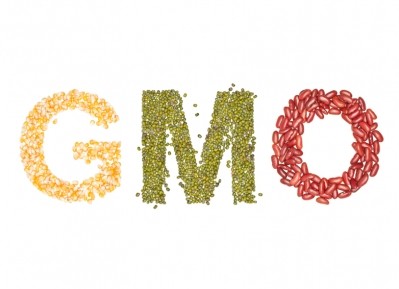'There has been zero economic impact assessment'- EU feed lobby livid over GM authorization reforms

The proposal, adopted by the College of Commissioners on Wednesday, seeks to allow individual countries in the EU to ban food and feed use of EU authorized GM crops on the grounds of ‘overriding public interest’.
“There is no physical alternative possible for the 30 to 35 million tons of GM soy imported into the EU annually to feed livestock.
If these proposed new rules get the backing of MEPs, then there would be no legal certainty for animal producers in terms of their raw material supply, leaving them reluctant to invest in expansion activities,” said Alexander Döring, secretary general of EU feed producers trade group, FEFAC.
He said the new rules would see a lack of a level playing field within Europe as the proposal allows for national and regional opt-outs, while the competitiveness of the EU livestock sector would also be undermined resulting in farm foreclosures, processing plant shutdowns and significant job losses.
Zero impact assessment
“It is mindboggling to think a ruling set to have such a catastrophic impact on the European livestock sector has had zero economic impact assessment and, furthermore, that the Commission failed to consult with any food and feed chain players prior to its adoption,” he told FeedNavigator.
However, the Health and Food Safety Commissioner Vytenis Andriukaitis, said the proposal delivers “on one of the important commitments” taken by this Commission last July to review the legislation on the decision-making process on GMOs.
“But what about the political commitments also made by this Commission on jobs and growth – such pledges no longer seem credible,” said Döring.
EU cereal and oil crushing trade groups, COCERAL and FEDIOL, said the plans were a violation of the new Commission’s promise to create ‘better regulation’.
Yet the Commission argues that each of the EU's GMO authorizations since 2004 has resulted from it being forced to act on its own after member states failed to deliver a sufficient majority for or against a GM product resulting in months of stalemate on trait approvals.
And it said this reform should prevent such hold-ups in the future and is in the interest of “democratic choice and consistency”.
Anti GMO lobby against proposal
But the new rules have been disparaged by the anti GMO lobby as well.
Greenpeace EU food policy director, Franziska Achterberg, said the proposal is “a farce” because it leaves the current “undemocratic system” untouched and would allow the Commission to continue ignoring major opposition to GM crops.
“The Commission is offering EU countries a fake right to opt-out that won’t stand up in any court. EU free market rules will always trump national opt-outs for GMO imports, especially if governments are denied the possibility of justifying national measures on health and environmental grounds,” she said.
Döring doesn’t buy this argument. “Countries wishing to opt-out of EU rules on GMOs now have the legal basis on which to do so. Hungary, a member state that has continuously voted against GMO authorizations, has it written into its constitution the right of its citizens to have access to safe and GM free food - such grounds are watertight.”
Asked whether it will get the backing of MEPs, the FEFAC representative: “It is going to be an uphill battle for opponents of this proposed new GM authorization process. I certainly don’t underestimate the political force of the NO voter member states – traditionally the Baltic countries, central and South Eastern European countries, and Poland, Hungary, Austria, Slovakia and Bulgaria - in relation to this.
Moreover, there has never been a really vocal political proponent or champion of free trade and market access to GM imports within the block of member states.
There are also no certainties that the member states who normally endorse GMO authorizations will continue to so in the future – all it takes is a change of government for that country to switch to being a No voter or an abstainer.”
This legislative proposal will now be sent to the EU Parliament and the Council to run its ordinary legislative course.
“Our expectation now is that the parliament and council would call for an economic impact assessment study on the new rulings instead of just rubber stamping the reform,” said Döring.
MEP reaction
UK Conservative MEPs reacted angrily to the Commission’s plans.
Environment spokesman, Julie Girling, said the announcement lacked consistency and courage, and added that decisions to allow or restrict the cultivation and sale of GM food should be based purely on scientific assessment of their benefits or potential risks.
She said: “GMOs authorised at EU level by the food safety watchdog EFSA are already deemed safe. It is a dark day when the EU's executive is happy to sit by and watch its own basic freedoms, trade commitments, farmers and consumers suffer while ignoring the scientific advice that taxpayers themselves are paying for.
It shows the Commission sadly lacks the backbone to stand up to a few anti-GM Member States. The proposal will ride roughshod over the basic principles of free movement of goods within the Single Market. It is submission dressed up as subsidiarity.
The proposal to re-nationalise decision-making on cultivation was one thing, and did at least unblock a legislative logjam over allowing GM crops to be grown. But now we are talking about effectively preventing imports of animal feed which many farmers rely on to feed their livestock.”










